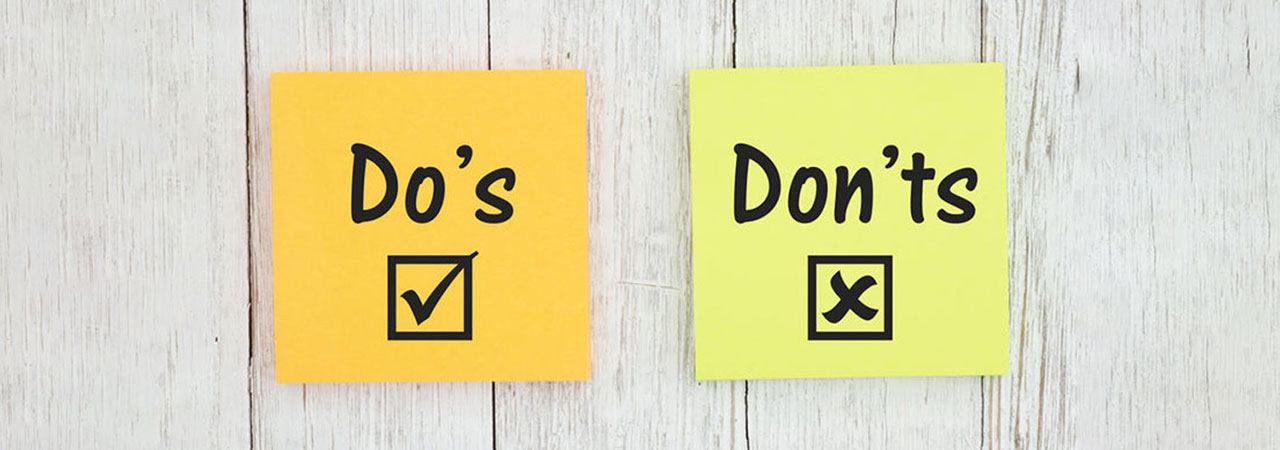3 things great dental teams do (and 3 to avoid!)

You’ve probably heard the phrase “strength in numbers.” This rings true in the dental office, where “teamwork makes the dream work,” as we’ve also heard you say!
While many dental teams report being strong and cohesive, others experience occasional growing pains. These teams are still learning how to work well together, which can take time.
We heard from dental assistants who love their dental teams and assistants who wish things were different at their office. Below are three things great dental teams do to foster strong working relationships — and three things to avoid.
Great Dental Teams Do …
Communicate
It’s likely no surprise that one of the top strengths among strong dental teams is their ability to communicate. Teams with top-notch communication often work in dental offices that foster a culture of collaboration — where no one hesitates to ask questions, provide encouragement and share knowledge. Some dental teams even start their workdays with morning “huddle” meetings to ensure the workday goes smoothly for everyone, including the patient.
Meredith P., CDA, has observed that communication is key for avoiding “silos” in the dental office — where team members work independently and not necessarily toward the same goal. This limited approach could negatively affect everyone in the office, especially the patient. Instead, “what benefits the patient is the ability for everyone to communicate,” Meredith says.
Lend a helping hand
Another sign of a strong team is when everyone is sharing the workload, so that no one feels overwhelmed by their to-do list. Elaine B., CDA, feels grateful to work among supportive coworkers who are eager to extend a helping hand.
“I work with the best group ever,” Elaine elaborates. “We have our dream staff. Every single person at my office is always willing to pitch in and do what needs to be done.”
Share a laugh
While the dental office is a serious place, strong dental teams can laugh together when it’s appropriate. Having a sense of humor and knowing when to take a lighthearted approach can help to diffuse any tension in the dental office.
Stephanie B. recognizes this trait in her own team. “We are a very small office, and our team is more like family, friendly sarcasm and practical jokes included,” she shares.
Great Dental Teams Don’t …
Exclude members of the team
Many dental assistants say their colleagues are like family — and this can be positive and help the dental office to feel like home. But beware: The flip side is that someone on the team may find themselves outside the friendship circle. They may even feel excluded from what might be perceived as the “office clique.” “Cliquey” behavior, or intentionally excluding someone, should be avoided. Rather, teams should strive to adopt a considerate culture where everyone feels heard, respected and included.
Joanna G., CDA, has seen cliquey behavior before and believes it can be hurtful. “I prefer to work with people who understand this is work, not high school,” she says. Jane D. agrees cliquishness can feel isolating, “like you’re the outsider.”
Assume they’re the expert
Weak dental teams also may have micromanagement mentalities. While the dentist is the known supervisor in the dental office, some team members may think they know best. They may even give direction to their peers as if they are in the supervisor role. This can be frustrating for those who may feel “bossed around” by their peers. “There are some people who think their way of doing something is the ONLY way,” agrees Kristin B., who has seen micromanagement before in the dental office.
In reality, it’s important that no one regards themselves as the sole expert in the office. Instead, everyone should strive be a team player, aware and respectful of others’ roles, strengths and feelings.
Dwell on drama
As you probably all can agree, the patients are the most important people in the dental office. Sometimes, team conflict can boil down to simply not prioritizing the patient and instead dwelling on what your co-workers are saying and doing. Whether there’s drama or not, the patients always deserve the dental team’s full focus — no matter what’s happening behind the scenes. “I’m there to serve the patients,” agrees Autumn S., CDA.
Sandra D., CDA, also believes the dental team should put any grievances aside for the greater good. “Everyone has to adapt to all personalities and accept one another and remember why we are there — for the patients, and not for ourselves.”

